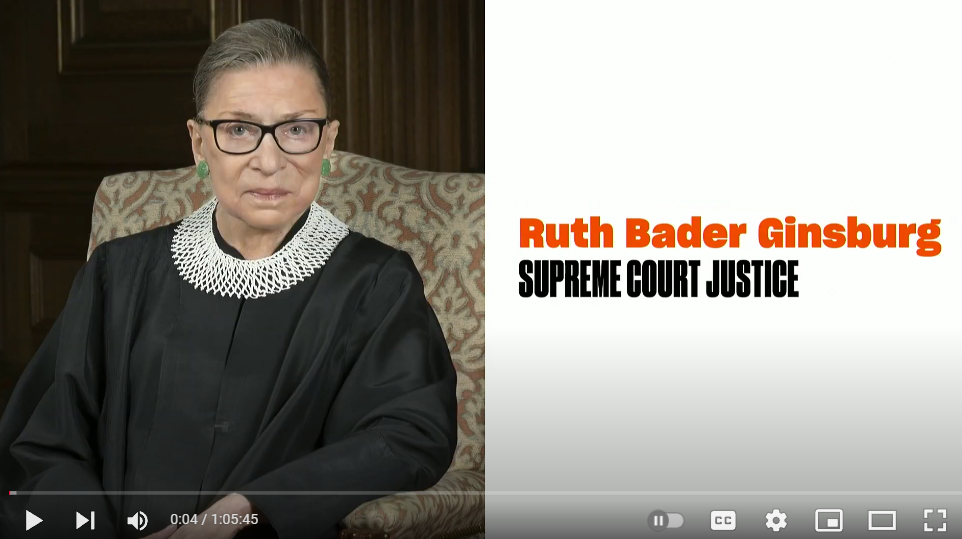U.S. Supreme Court Justice Ruth Bader Ginsburg at 2019 Library of Congress National Book Festival

Panel Discussion with Justice Ginsburg, 2019
Watch the video from 26:30-30:26.
Except Transcript
Totenberg: So today, women to some extent take for granted their equality in the workplace. But that was not the case when you were a young lawyer. You couldn’t get a job in the law firm. You had not one, but two strikes against you…
Ginsburg: It was three! First a Jew, and they were many. Strikes long. Long. Well known firms in New York that would not yet up to welcoming Jews. The next I was a woman. That was a higher barrier. But the absolute killer was I had a four-year-old daughter when I graduated from law school.
You were a mother. So if they would take a chance on a woman. A mother was more than they were willing to risk.
Totenberg: So you had top grades at Harvard and in your last year of law school. When you moved to New York with your husband, you were tied for first place at Columbia Law School. And you’re applying for clerkships. And tell us how you find you didn’t get a clerkship. Because nobody, by and large would even interview you. For the most part.
Ginsburg: Yes. Those were pre-Title Seven days. So employers were upfront about saying women are not welcome in this workplace or, “we had a lady lawyer once and she was dreadful.” “So how many men have you had that didn’t work out?” And I had a wonderful professor at Columbia Law School and later moved to Stanford, Jerry Gunther. He was in charge of getting clerkships for Columbia students. And he called every federal judge in the Second Circuit in the southern and eastern districts of New York. And he was not meeting with success. So he called a Columbia graduate Judge, Edmond Palmieri, who was a Columbia undergraduate Columbia Law school graduate, and always took his clerks from Columbia. And he said, “I strongly recommend that you engage Ruth Bader Ginsburg.” And Palmieri’s response was, “I’ve had women law clerks. I know they’re OK, but she’s a mother. And sometimes we have to work on weekends, even on a Sunday.” So Professor Nelson said, “Give her a chance and if she doesn’t work out, a young man in her class who’s going to a downtown firm, will jump in and take over.” So that was the carrot. It was also a stick. And the stick was, “If you don’t give her a chance, I will never recommend another Columbia graduate as your law clerk.” That’s the way I was in. Not so ancient days. For women, the big hurdle was to get that first job. Once a woman got the job, she did it at least as well as the men. So the second job was not the same obstacle.
Questions
What challenges did Ruth Bader Ginsburg face early in her career?
How do cultural attitudes influence women’s experiences in the workplace?
How have they changed?